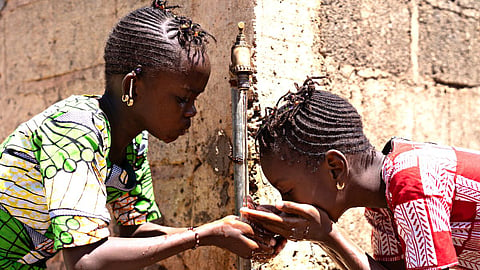Cholera outbreak in SA – a red flag indicating severe trouble that good governance could have prevented (UPDATED)
Cholera, an extremely virulent disease that can cause severe acute watery diarrhoea, has a violent track record in human history. Cholera has a long and complex history, dating back centuries and remains a significant global health concern, particularly in areas with inadequate sanitation and limited access to clean water. This latest outbreak in South Africa is a serious red flag indicating severe trouble in our country that could have been avoided with good governance. – Nadya Swart
Waste-Treatment Mess Spawns Cholera in South Africa Capital
By Janice Kew and Antony Sguazzin
Dysfunctional waste-water treatment around the South African capital of Pretoria contributed to a deadly cholera outbreak that's left at least 15 people dead, according to David Mahlobo, the deputy minister for human settlements, water and sanitation.
While a centre is coordinating efforts to tackle the problem, poor management of water has been a problem for years in Tshwane, the municipality that encompasses the city, Mahlobo told reporters on Monday. In many instances, the national water department's engagement with the municipality "has not been very productive", Mahlobo said.
"There's been an issue of conflicts, and the citizens were exposed," he said, referring to how the local government has swung between being led by members of the African National Congress and members of opposition parties. "The issue of coalition governments creates instability".
Residents of Hammanskraal in northern Tshwane, where the outbreak occurred, blocked a car transporting Mayor Cilliers Brink, a member of the opposition Democratic Alliance, when he visited a hospital in the area, broadcaster Jacaranda FM reported. Pretoria issued a notice urging the local community not to drink the tap water. The municipality is supplying water bowsers to the local hospital and surrounding communities.
[WARNING STRONG LANGUAGE]
Angry #Hammanskraal residents ambush two cars transporting Tshwane Mayor Cilliers Brink at the Jubilee District Hospital where a #CholeraOutbreak has been reported. They accuse the Tshwane municipality of ignoring their concerns the state of water here pic.twitter.com/8A96yjxKkI— Jacaranda News (@JacaNews) May 22, 2023
The DA and its coalition partners inherited a run-down city and haven't been able to address all its problems, John Steenhuisen, leader of the party, said in an interview in Johannesburg.
The issues in Hammanskraal are "preexisting conditions", and the city has had "a very limited budget", he said. The coalition government hasn't been "able to really get in and do a big infrastructure" program, Steenhuisen said.
The population of Tshwane has grown rapidly, increasing to 3.56 million in 2017 from 2.48 million a decade earlier, according to South Africa's Department of Cooperative Governance and Traditional Affairs.
Some suburbs in the city "have grown massively", Steenhuisen said. "It's a big problem when your infrastructure doesn't keep up with your growth."
Governing in a coalition has complicated fixing the city, he said.
"It's a lot easier when you're in government on your own to be able to get it done," Steenhuisen said. It's less easy when parties "inherit a city in a bad way and then try to manage it with a very, very big unwieldy, fragmented coalition."
Cholera is a diarrheal disease caused by a virus that spreads in unsanitary conditions. Hundreds of people have died in Malawi and Mozambique from the disease this year after heavy rains from a tropical cyclone. A small number of cases were previously reported in South Africa.
Recent efforts to contain the disease globally have also been hampered by a lack of vaccines. The Biovac Institute, a partly state-owned vaccine producer in South Africa, last year secured a deal to make an oral cholera inoculation. The country has yet to say whether it has stock to disperse locally.
In the central Free State province, which neighbours Gauteng, where Pretoria is situated, six cases of cholera have been confirmed, and 76 people have visited hospitals with diarrheal infections, the National Department of Health said in a statement on Sunday. The infections were found in the towns of Vredefort and Parys.

